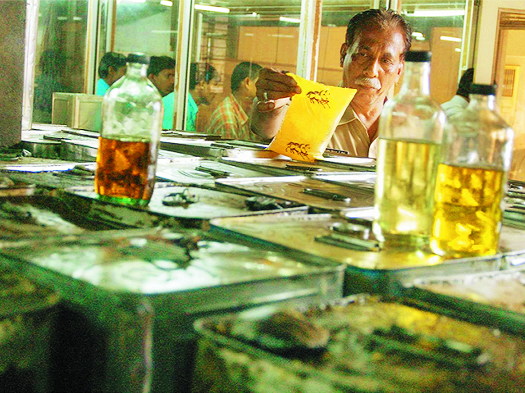Refrain from buying loose coconut oil: COMA
| Date :18-May-2019 |
Business Bureau
Highlighting the issue of adulteration in coconut oil, the body of oil merchants said that such blended oil may lead to health problems. The body has also appealed to the consumers to refrain from buying loose coconut oil. The Cochin Oil Merchants Association (COMA) has brought to light the practice of adulteration in loose coconut oil.
According to the COMA press release issued here, “There has been widespread blending of solvent extracted oil with coconut oil. The solvent extraction units are importing oil cakes for industrial purpose and then mixing extracted oil with loose coconut oil to make it cheaper.”

The COMA questions whether such blended oil can be deemed fit for consumption. For several years, there has been a concern regarding the blending of industrial oils in loose coconut oil. The affect of these oils on users range from hair fall and irritation to paralysis and cancer. The Government has, in fact, banned the sale of loose edible oil because of these concerns. Last year, the Kerala Food Safety Department banned 74 sellers selling adulterer coconut oil and 14 more banned last week.
The practice of adulteration of loose coconut oil, though, is not limited to the State of Kerala. In fact, more than 25 states including Andhra Pradesh, Telangana, Karnataka and Kerala have banned the sale of loose coconut oil and vigilant food safety officers have punished perpetrators across the country. Last year, in a crackdown by the Food and Drug Administration in Maharashtra, huge stock of loose edible oil worth Rs 30 lakh in Mumbai and Rs 42 lakh in
Pune were seized on suspicion of adulteration.
And yet, over the past few years, there have been several reports regarding the prevalence of rampant adulteration of loose coconut. A report by Consumer Voice, a voluntary consumer rights group found that 85 per cent of coconut oil sold in the loose form is adulterated.
FSSAI is the apex body that handles food related issues and lays down science-based standards for articles of food and ensures the safety of food throughout its supply chain. It approves the sale of only those brands which conform to stringent standards and quality checks. Food products that meet the standards are given an FSSAI seal of approval.
Consumers should examine the labels of the oils they buy to find the FSSAI seal of approval. Consumers should examine the labels of the oils they buy to find the FSSAI seal which ensures that the oil is pure and of good quality, informs a press release issued here.